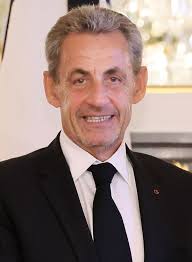
Introduction
The political landscape of France has often been shaped by its leaders, and Nicolas Sarkozy is one such figure whose tenure as President from 2007 to 2012 left a significant impact on both domestic and international fronts. Known for his charismatic leadership and controversial policies, Sarkozy’s governance is an essential topic in understanding contemporary French politics.
Background and Early Career
Nicolas Sarkozy was born on January 28, 1955, in Paris, into a Hungarian immigrant family. His rise in politics began in the 1980s, and he became a prominent figure in the Union for a Popular Movement (UMP). Prior to his presidency, Sarkozy served in various cabinet positions, including Minister of the Interior, where he earned a reputation for his tough stance on crime and immigration.
Presidency Highlights
When Sarkozy was elected in 2007, he promised to revitalize the French economy and restore the country’s global influence. His administration focused on several key areas:
- Economic Reform: Sarkozy implemented measures aimed at reducing unemployment and reforming labor laws. His government passed a controversial pension reform that raised the retirement age.
- Foreign Policy: Sarkozy was proactive on the global stage and played a crucial role in the military intervention in Libya in 2011, advocating for humanitarian assistance and the protection of civilians.
- Immigration Policy: He adopted stringent immigration measures, including a crackdown on illegal immigration and efforts to assimilate newcomers.
Controversies and Criticism
Sarkozy’s presidency was not without its controversies. He faced criticism for his handling of the economy during the Eurozone crisis and for his aggressive campaigning style. Additionally, the inquiry into alleged financial misconduct during his campaign led to significant political strain. His close relationship with powerful leaders and controversial remarks often drew public ire, raising questions about the integrity of his leadership.
Conclusion
Nicolas Sarkozy remains a polarizing figure in French politics. His policies have sparked debates about economic reform, immigration, and France’s role in global affairs. Even after leaving office, his influence is felt in the ideologies of various political factions. As France moves forward, the lessons drawn from Sarkozy’s presidency will continue to shape discussions on governance and leadership strategy. Future political trends will be measured against the backdrop of his administration, signifying his enduring legacy in the chronicles of French history.



